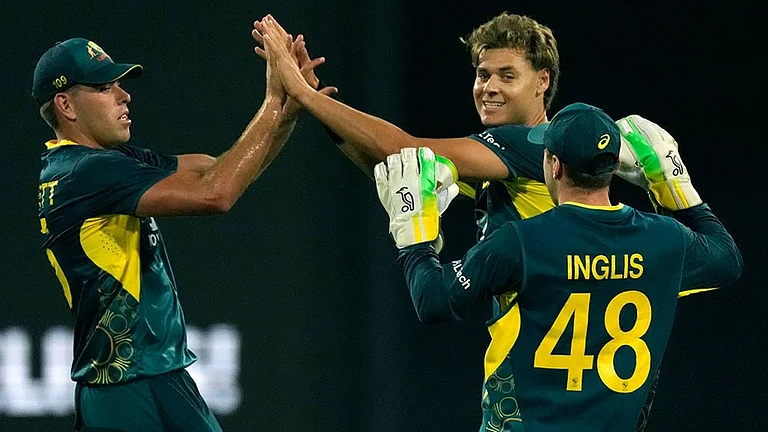Foreign ministers of the quad countries are meeting in Australia on Friday to put in place outreach plans to counter China’s aggressive moves to be the principal power in the Indo-Pacific. India’s Subramanyam Jaishankar will sit down with US secretary of state Antony Blinken, Japan’s Hayashi Yoshimasa and Australia’s Marise Payne for a detailed conversation in Melbourne.
Each of the four-member countries has stressed that the US, Australia, India, Japan grouping is not a military alliance. That is reserved for the English-speaking trio of Australia, the UK, and the US, making up the AUKUS. The US and UK are sharing state of the art nuclear submarine technology with Australia, to strengthen its capacity to take on reconnaissance duties in the Pacific waters where the Chinese navy has an overarching presence.
This suits New Delhi as it is averse to military alliances and wants to co-operate with various countries on issues affecting India’s self-interest. Friday’s quad discussions will address issues of vaccine distribution, supply chain network and how to offer better development terms to countries in the Indo-Pacific, to wean them away from the Chinese sphere of influence, as well as its Belt and Road Initiative.

Yet so far, the quad has done little to mark its presence in the Indo-Pacific apart from holding high-level meetings. The plan to make vaccines in India and distribute them to island nations in the Pacific with Australia’s help and money from Japan has not yet taken off.
The meeting is taking place at a time when the international focus in on Ukraine and hectic diplomatic efforts are on to ensure that Russia does not declare war in the heart of Europe. However Russian has time and again explained it is not looking to invade Ukraine, but wants to make sure that the North Atlantic Treaty Organisation (NATO) a trans-Atlantic Western military alliance does not extend into its backyard and threaten its security. In short, Moscow wants to make sure that Ukraine is not part of NATO, which would extend its frontiers to Russia’s doorstep. Though Ukraine has nothing to do with the Indo-Pacific, Blinken is likely to bring it up, if only to emphasize China and Russia’s growing strategic alignment.
India-Russia-US-China equation
Over Ukraine, India is caught in the crossfire between Russia and the US -- both countries are important for India’s strategic interests. New Delhi, like the rest of the world, is hoping that the crisis will be diffused through diplomacy. Last month at the UNSC, India abstained from voting on the US resolution to discuss the situation in Ukraine as a threat to international peace and security. Russia and China opposed it, while 10 of the 15 members voted in favour of the resolution. India, Kenya and Gabon abstained. Russian ambassador to the UN, thanked the three countries for their abstention.

With Russia and China coming together for what they perceive as the US and its friends targeting both countries, India is in a peculiar position. India’s decision to join the anti-China quad, has much to do with Beijing’s hostility towards New Delhi and the Ladakh stand-off. Yet during that time, Russia did not hesitate in sending much needed military spare parts to India. Russia and China may be strategic partners, but New Delhi is confident that Moscow will not be dictated by Beijing in its engagement and traditional friendship with India.
While this kind of pragmatism is expected from Moscow, if push comes to shove in Ukraine, American lawmakers will want India to choose sides. Luckily for India, the professionals in the Biden team, as well as the President himself, who is familiar with foreign affairs, will not want to alienate India at this particular point of time. Washington wants India as a bulwark against China in Asia, and that consideration will remain upper most in the administration’s thinking.
India and America have a shared strategic vision on containing China’s unfettered rise in Asia. Unless that changes India will have enough leeway to manage its relations with both Washington and Moscow on its own terms. The Modi government’s participation in the quad, as well as its purchase of the S-400 missile defence system from Russia, is a manifestation of the complex diplomatic and strategic power play in Asia.



























